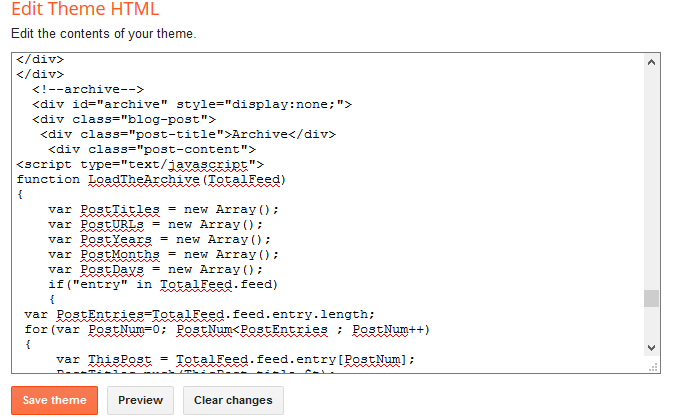Blogger days
I have been using Blogger eversince I started blogging in 2011. To gain more flexibility in editing my Blogger theme, I reverted to the classic theme but this also stripped me from the other options that were available for use with Blogger's own templates. That included widgets, plugins and even pages. Not to mention the classic theme editor was just a basic textarea field 😐 making it incredibly hard to indent and differentiate tags with the lack of syntax highlighting.

It was also hard to embed external widgets like DISQUS for comments or install plugins like Google Analytics. But I didn't care too much for these things back then anyway. Then there was the pagination issue. You might think something as basic as a pagination should be an easy one for a blog but unless you're up for a challenge I dare you to create one from scratch 😛.
The biggest issue I had with Blogger's classic theme was not being able to create pages. A cheap workaround that I came up with for this was using JavaScript to hide and display contents, giving an illusion as though there were navigation between pages. There was no change of URL for indication of which page was the current page and it looked cheap as hell (from a developer's perspective). It wasn't just the cheapness but also the inconvenience to navigate to post categories which is one of the most defining features of most blogs.
The need for change
Then there was the realization of Blogger's declining popularity. I have very few friends who do actually own a blog. It didn't take me long to realize that no one uses Blogger anymore. I have been exploring other alternatives along the way such as WordPress, Tumblr and Medium. But all of these platforms seemed to have their own agenda. I didn't really see myself posting lengthy posts in Tumblr and I didn't see my rants suitable to be published in Medium and WordPress just had a community of people who were, let's be frank, mostly middle-aged people or business-minded people. In a nutshell, I didn't see myself fitting in these virtual environments. Yes, it's not just about getting your thoughts out there but also fitting into the community of people who gives life to these platforms.
Revelation
One day I got a request from my club's president to migrate the club's website from WordPress to Jekyll. I didn't have the slightest inkling as to what Jekyll was back then. I did my own research, learnt some Markdown and soon enough I found myself looking at Jekyll themes for the new website. Everything was completely manual, highly editable and best of all it could be hosted right from my own machine. Jekyll essentially gives you the power over your content and styles and together with GitHub Pages, it allows you to deploy your website or blog online. It's a developer's must-have.
I was quite happy with the Jekyll blog that I created for my club. I thought I wanted to create one for myself too, a personal blog. But I thought long and hard at this because of the numerous blog posts from Blogger dating all the way back to 2011 that I would have to copy over. Also, I would have to leave behind the post comments and blog followers which I have garnered over the years 😕. In the end, I finally decided to create a Jekyll blog for myself and move over some of the contents from my previous blog dating from the year 2018 onward.
This blog is the outcome. The default theme was Minima. I forked the Lagrange theme and tweaked the styles to make the theme look close to the Libretto theme. The Lagrange theme was especially handy as it came with DISQUS and Google Analytics plugin. Overall, I am pleased with my new blog as I have control over the content, formatting, styling and hosting. I am excited to write more quality content in the future!